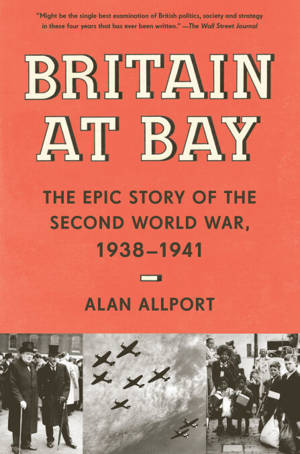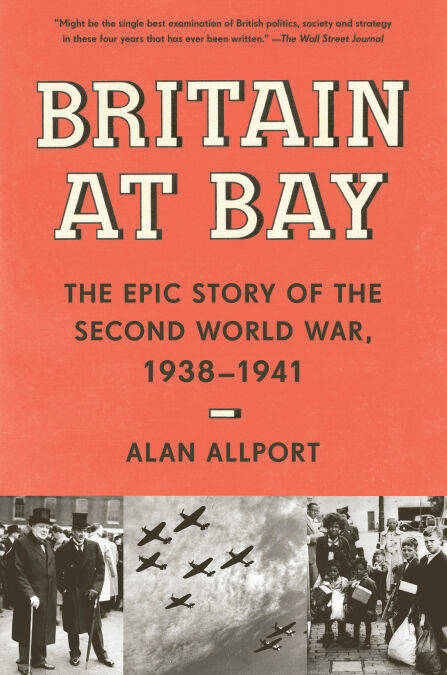
Bedankt voor het vertrouwen het afgelopen jaar! Om jou te bedanken bieden we GRATIS verzending (in België) aan op alles gedurende de hele maand januari.
- Afhalen na 1 uur in een winkel met voorraad
- In januari gratis thuislevering in België
- Ruim aanbod met 7 miljoen producten
Bedankt voor het vertrouwen het afgelopen jaar! Om jou te bedanken bieden we GRATIS verzending (in België) aan op alles gedurende de hele maand januari.
- Afhalen na 1 uur in een winkel met voorraad
- In januari gratis thuislevering in België
- Ruim aanbod met 7 miljoen producten
Zoeken
Britain at Bay E-BOOK
The Epic Story of the Second World War, 1938-1941
Alan Allport
E-book | Engels
€ 13,88
+ 13 punten
Uitvoering
Omschrijving
A sweeping, groundbreaking epic that combines military with social history, to illuminate the ways in which Great Britain and its people were permanently transformed by the Second World War.
Here is the many-faceted, world-historically significant story of Britain at war. In looking closely at the military and political dimensions of the conflict's first crucial years, Alan Allport tackles questions such as: Could the war have been avoided? Could it have been lost? Were the strategic decisions the rights ones? How well did the British organize and fight? How well did the British live up to their own values? What difference did the war make in the end to the fate of the nation?
In answering these and other essential questions he focuses on the human contingencies of the war, weighing directly at the roles of individuals and the outcomes determined by luck or chance. Moreover, he looks intimately at the changes in wartime British society and culture. Britain at Bay draws on a large cast of characters--from the leading statesmen and military commanders who made the decisions, to the ordinary men, women, and children who carried them out and lived through their consequences--in a comprehensible and compelling single history of forty-six million people. For better or worse, much of Britain today is ultimately the product of the experiences of 1938-1941.
Here is the many-faceted, world-historically significant story of Britain at war. In looking closely at the military and political dimensions of the conflict's first crucial years, Alan Allport tackles questions such as: Could the war have been avoided? Could it have been lost? Were the strategic decisions the rights ones? How well did the British organize and fight? How well did the British live up to their own values? What difference did the war make in the end to the fate of the nation?
In answering these and other essential questions he focuses on the human contingencies of the war, weighing directly at the roles of individuals and the outcomes determined by luck or chance. Moreover, he looks intimately at the changes in wartime British society and culture. Britain at Bay draws on a large cast of characters--from the leading statesmen and military commanders who made the decisions, to the ordinary men, women, and children who carried them out and lived through their consequences--in a comprehensible and compelling single history of forty-six million people. For better or worse, much of Britain today is ultimately the product of the experiences of 1938-1941.
Specificaties
Betrokkenen
- Auteur(s):
- Uitgeverij:
Inhoud
- Aantal bladzijden:
- 608
- Taal:
- Engels
Eigenschappen
- Productcode (EAN):
- 9780451494757
- Verschijningsdatum:
- 2/11/2020
- Uitvoering:
- E-book
- Beveiligd met:
- Adobe DRM
- Formaat:
- ePub

Alleen bij Standaard Boekhandel
+ 13 punten op je klantenkaart van Standaard Boekhandel
Beoordelingen
We publiceren alleen reviews die voldoen aan de voorwaarden voor reviews. Bekijk onze voorwaarden voor reviews.









